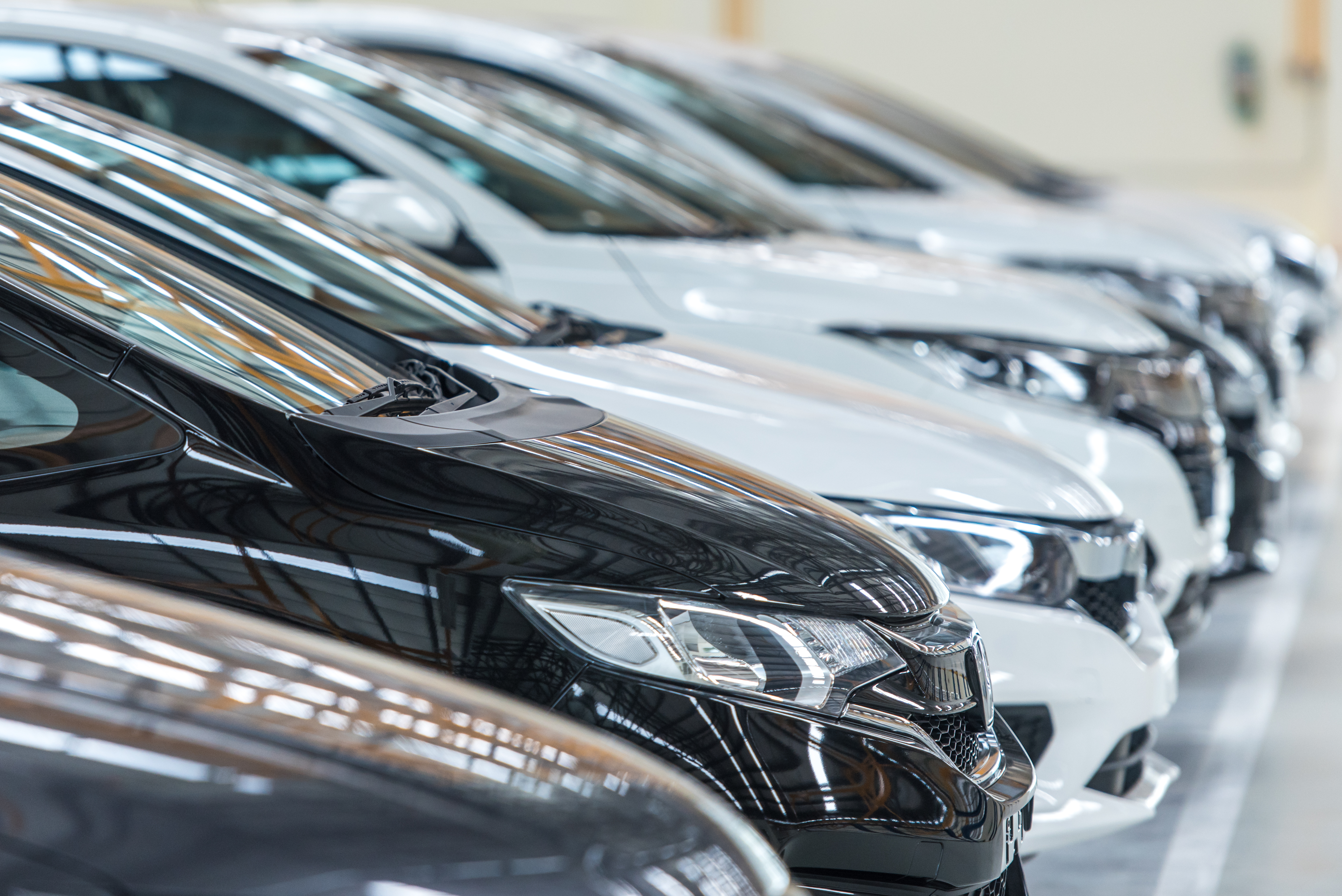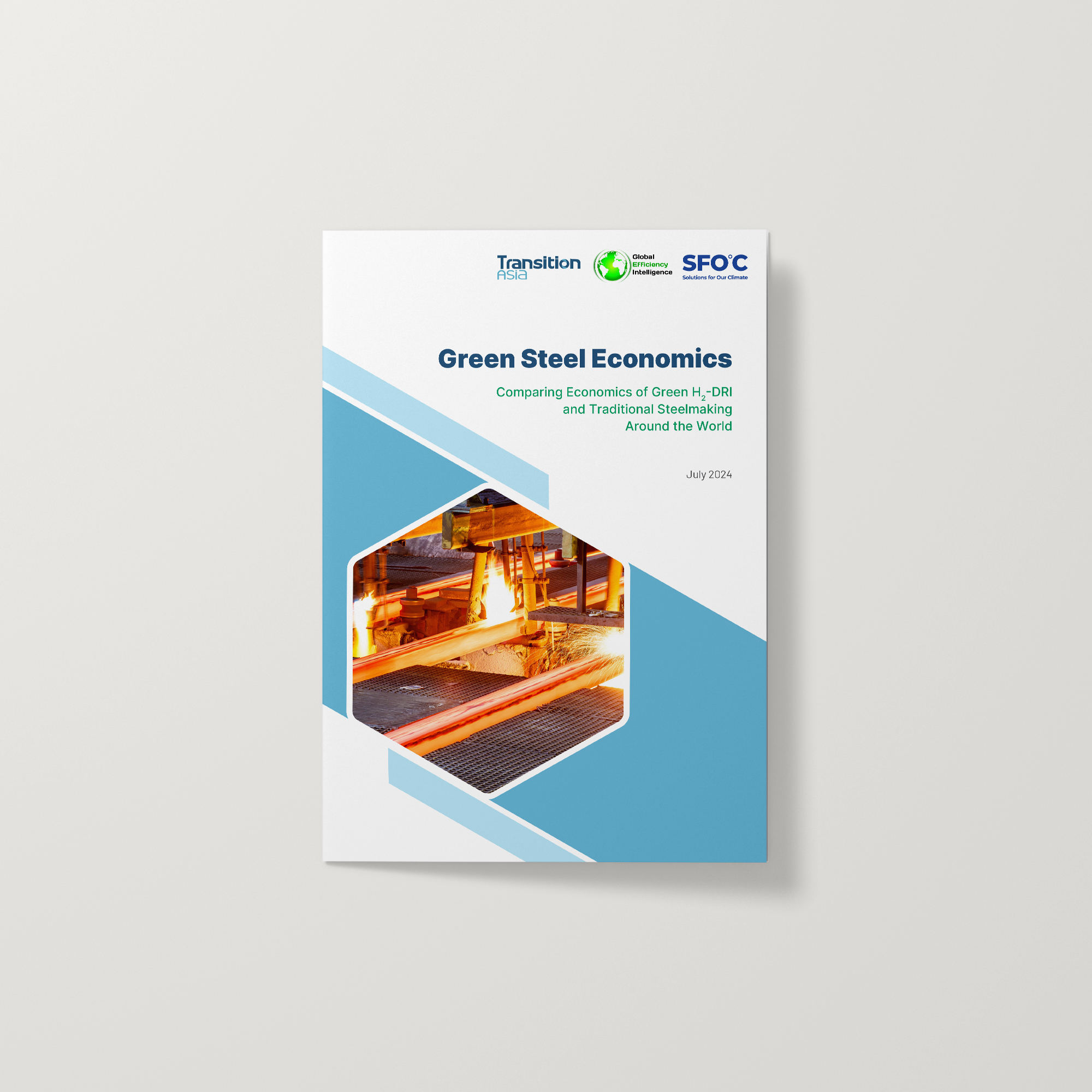January 23, 2025 (SEOUL) – While the EV transition continues to grab headlines when it comes to sustainability in the automotive sector, supply chain decarbonization is emerging as the next competitive frontier, with European and US automakers investing in low-carbon materials. New report by Solutions for Our Climate (SFOC) finds that the Hyundai Motors Group, responsible for approximately 84% of domestic automobile production, risks having its global competitiveness undermined by the lackluster progress of its subsidiary, Hyundai Steel, when it comes to decarbonization efforts.
Steel accounts for between 30-50% of a vehicle's weight and takes up between 15-35% of the carbon footprint. This makes it a core material for supply chain decarbonization efforts of global automakers – and this focus has been reflected in the proliferation of green steel procurement agreements globally. Leading global automaker, Mercedes-Benz, announced last year that it had reduced the life cycle carbon emissions of its vehicles by 3.4 tons per unit from 2020 to 2023 by leveraging electric arc furnace-based steel products that use renewable energy. Volvo Trucks also announced plans to procure carbon-free steel “SSAB Zero™” in truck frames.
In last year’s Sustainability Report, Hyundai Motor shared plans to reduce supply chain emissions by over 10% by 2030, by 40% by 2035, and by 60% by 2040. However, the SFOC report found that the lack of transparent and detailed decarbonization targets from Hyundai Steel beyond 2030, particularly when it comes to the commercialization of innovative technologies needed to produce steel with a low carbon footprint, is misaligned with the targets set by Hyundai Motor. Given that almost two years have passed since Hyundai Steel’s carbon neutrality roadmap was announced, failing to provide detailed milestones can create uncertainty amongst investors while threatening the ESG competitiveness of Hyundai Motors and Kia.
Figure 1. Comparison of Hyundai Motor's supply chain carbon neutrality roadmap with Hyundai Steel's carbon neutrality roadmap

Heather Lee, Team Lead at SFOC said: “The Hyundai brand has huge weight both in Korea and globally. By failing to decouple from coal-based steel production and insufficient investment in innovative steel production methods, Hyundai Steel risks dragging down Hyundai Motors' global sustainability ambitions. Rapid action and transparent disclosure of carbon neutrality milestones is critical for Hyundai Steel to succeed as a supplier of the broader Hyundai group and other global customers."
Annually, Hyundai Motor and Kia source approximately 6 million tons of automotive steel, with Hyundai Steel supplying around 60-70%. This makes Hyundai Steel's decarbonization progress either a key enabler or Achilles’ heel of Hyundai Motor Group’s supply chain decarbonization. In addition to highlighting the need for the Korean steelmaker to enhance its decarbonization targets, the report calls attention to mitigating greenwashing risks.
Figure 2. Example of potential greenwashing when using the mass balance method for steel produced via hybrid processes

Hyundai Steel is the second-largest carbon emitter in Korea, excluding power companies, generating 29.16 million tons of CO2e in 2023 through producing 12 million tons of steel from coal-based blast furnaces and another 12 million tons from electric arc furnaces. Illustrating the risks of coal-based blast furnace-based steel product reliance and lack of transparency, the country’s largest steelmaker, POSCO, recently faced greenwashing legal challenges and was required to amend the branding of its Greenate products. For Hyundai Steel to avoid similar pitfalls, and for Hyundai Motors and Kia to be certain of the sustainability credentials of purchased steel products, carbon emission reductions of products must be clearly communicated and involve genuine progress on coal phase-out and the switch to clean steelmaking alternatives.
To ensure its competitiveness as a steel supplier, Hyundai Steel must disclose a detailed decarbonization roadmap with milestones that demonstrate concrete carbon emission reductions, such as shutting down its coal-based blast furnaces and sourcing renewable energy for electric arc furnaces.
ENDS.
Solutions for Our Climate (SFOC) is an independent nonprofit organization that works to accelerate global greenhouse gas emissions reduction and energy transition. SFOC leverages research, litigation, community organizing, and strategic communications to deliver practical climate solutions and build movements for change.
Website: https://forourclimate.org/
For media inquiries, please reach out to SFOC’s International Communications team: Kate Kalinova at kate.kalinova@forourclimate.org and Yi Hyun Kim at yihyun.kim@forourclimate.org.
Share this insights
















![[CREA-SFOC] Unveiling the Truth Behind Blast Furnace Pollution_South Korea](https://content.sfoc.tapahalab.com/images/research/C4Xvdme.jpg)







